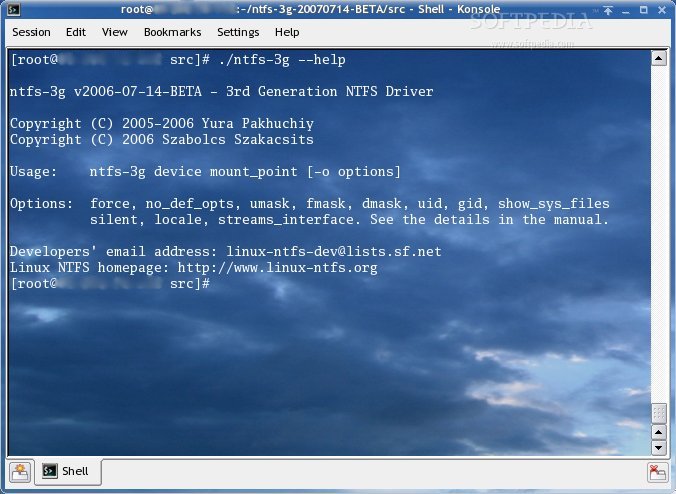

The tools available for Arch Linux are listed in the #Partitioning tools section. Partition tables are created and modified using one of many partitioning tools. The partitioning scheme is stored in a partition table such as Master Boot Record (MBR) or GUID Partition Table (GPT). If not, let me know and I’ll try to help you out further.Disk partitioning or disk slicing is the creation of one or more regions on secondary storage, so that each region can be managed separately.Īn entire disk may be allocated to a single partition, or multiple ones for cases such as dual-booting, maintaining a swap partition, or to logically separate data such as audio and video files. This may lead to unwanted situations.ĭid this solution help you in getting rid of the “packages have been kept back” error? If yes, I welcome your quick ‘thank you’ message in the comment section. The apt full-upgrade may automatically remove packages that it deems unnecessary while handling dependencies.
Desinstalar ntfs 3g install#
You may also use apt full-upgrade or apt-get dist-upgrade instead of apt install –only-upgrade package_name in this case but I would not recommend that.
Desinstalar ntfs 3g update#
When you manually and individually update these packages, you see what new packages are going to be installed and the error is not shown anymore. This is a mechanism in Debian’s APT package manager that informs you that an already installed package now needs to install more new package as dependency. Later, a newer version of fwupd required the installation of these new packages. In the example here, when fwupd was originally installed, tpm2-tools and tpm2-abrmd were not installed and fwupd did not depend on it. However, if the dependencies of an installed package have been changed such that it requires installation of new packages, the installed package won’t be upgraded with the system update and you’ll see package kept back error. Normally, when you run the sudo apt update and sudo apt upgrade commands, it updates all the installed packages to their available newer versions. But are you curious what caused the error and how was it fixed? Let me explain that to you. The above suggested fix should solve the problem for you. So, here’s what I tried: sudo apt install -only-upgrade fwupdĪs you can see in the below screenshot, it suggests two packages that will be installed and then those packages are installed as well.Įxplained: Reason for the “The following packages have been kept back” error and how it was fixed This ensures that the dependencies that were installed automatically get removed automatically if you remove relevant packages. With the -only-upgrade option, it will only upgrade it and won’t mark the package as manually installed, instead of automatic. If you use apt install on an already installed package, it gets updated. All you have to do is to use the apt install command with package or packages in the question: sudo apt install -only-upgrade package_name

Fixing “The following packages have been kept back” Error
Desinstalar ntfs 3g how to#
Let me show you how to handle this error in Ubuntu and other Linux distributions like Linux Mint, Debian, Kali Linux etc. As you can see in the image above, the problem is arising because of fwupd which is the firmware update manager daemon in Ubuntu and other Linux.


 0 kommentar(er)
0 kommentar(er)
